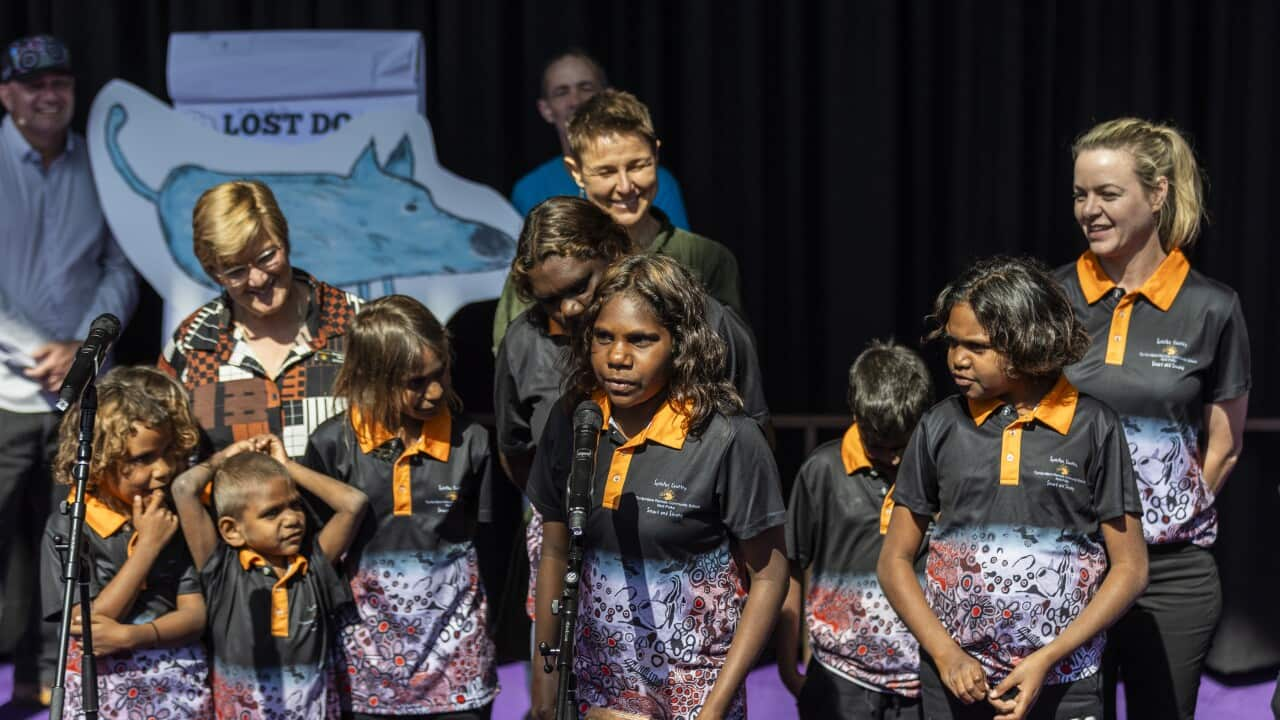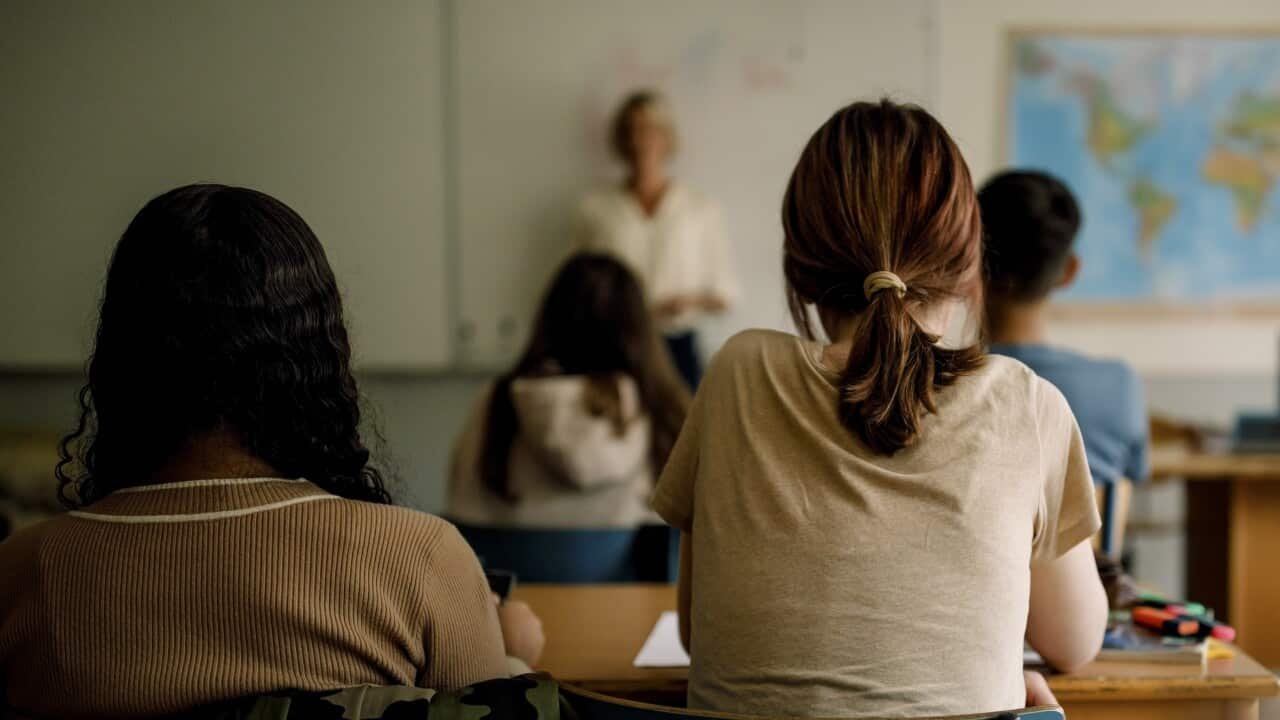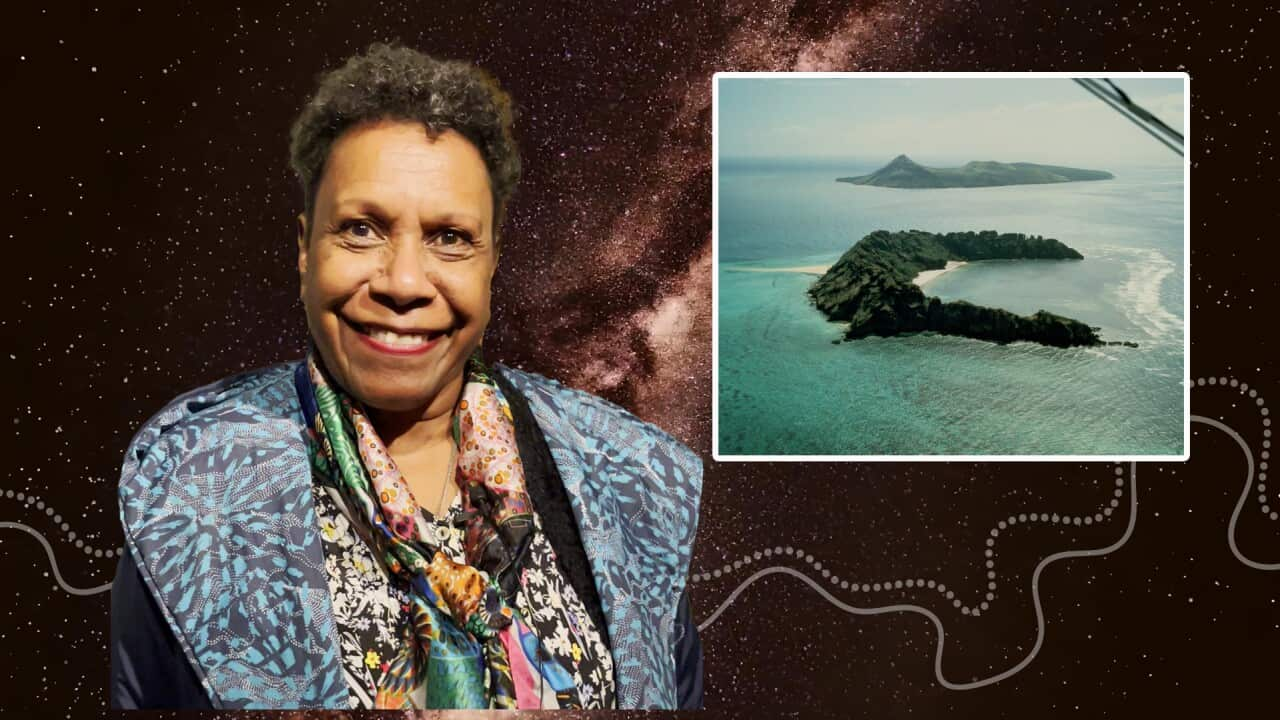Elsie Seriat couldn’t wait to have children of her own to put them through an early childhood program that Elders had fought for on Waiben, Thursday Island.
Tagai State College is the only state-owned school in Queensland that offers the Montessori program, which is recognised as aligning with Indigenous pedagogies.
But parents are concerned the program is under threat, as the school weighs up state funding options.
The Queensland government is looking to invest $26.23 million dollars over three years to support schools to extend their kindergarten hours by up to 30 hours per week.
Parents of Tagai College students told NITV that, in a closed meeting, they were informed the school would look to take up the offer. As a result, it would not have the capacity to run the full two-year Montessori program.
Ms Seriat was one of the 537 parents and community members to sign a petition to save the program.
“It's the program I believe in, and I'm sure all other parents believe in, and we've got good anecdotal stories to tell as to why we think the program should stay,” she said.
The petition, which began September 20, sparked interest from all levels of government.
State and federal Department of Education delegates flew to Waiben to meet with the community in an open meeting.
Media were not allowed to record at this event, held at Tagai primary school.
The Department apologised publicly for the lack of consultation, noting “misunderstandings”, and promised to consult further before making decisions.
Community seeing positive effects in students
Elsie’s partner Neville Johnston said the program had shown benefits in his and other Montessori children.
“We've noticed that at home ... their mannerisms, the way they treat each other, and also other kids in the neighbourhood,” he said.
“We feel that it's come directly from the guidance that the Montessori system has provided them.”
Whilst the Montessori program runs for two years during the early years on Waiben, in most locations it runs from early childhood to high-school.
In other locations the tuition fees can be over $2000 per term.
Tagai State College is the only school in Queensland fully subsidising the program.
But Mr Johnston says the program is worth the investment because it is beneficial for the whole community, cultivating resolute young minds.
“[One] of the key ways is probably the way that they handle certain situations a lot more calmer.
“Kids can sometimes be quick to react to stuff, particularly when they don't get their own way or when there's a conflict.”
But parents in the community expressed concerns that not enough First Nations Children were accessing Montessori, which was how the program was funded in the first place.
Ms Seriat said she would be encouraging community members to join future consultations and share the barriers they expeirnce.
“I am going to be the biggest advocate for this program, for helping families find out, what are the challenges for you – is it transport?,” she said.
Can it be saved?
Ned David is the Chair of the Torres Strait Islanders Regional Education Council (TSIREC), a community-based advocacy body in the region.
Established in 1981, its charter is to represent the Torres Strait region’s educational interests and it was critical in securing Waiben’s Montessori Program.
He said this wasn’t the first time the program had come under threat.
“We should never lose sight of what we've set out to do all those years ago, and that is we control and manage and run education in the region,” he said.
“Every year we get a little bit closer to that.”

Ned David says the self-determination of choosing education programs for the region would help to close the gap. (Supplied: Carli Willis)
“Investing in the early years to human beings that will be highly developed, highly smart, loving, respectful and asking to resource the early years,” he said.
“That shouldn't be any problem, because research says, investing in the early years – getting it right there – sets them up forever.”
At the community consultation, the Department of Education Queensland said it was undergoing a review into the resourcing of state schools.
Mr David said to keep Montessori program from continuing to come under threat, stakeholders needed to come together and strategise a 10 year plan.
“There’s got to be genuine unity in leadership in this region,” he said.
“There's no shortage of money around, no shortage of resourcing, but that's only part of the answer.
“A critical piece is the quality Montessori teachers you need with the expertise, but that's the other bit that's always been an issue for us.
Mr David said it was difficult and expensive starting the program and training local people in the Montessori approach.
He said now, succession planning was also required as senior staff may not be around forever.
“It has to be a ten year plan that comes with some guarantee,” he said.














